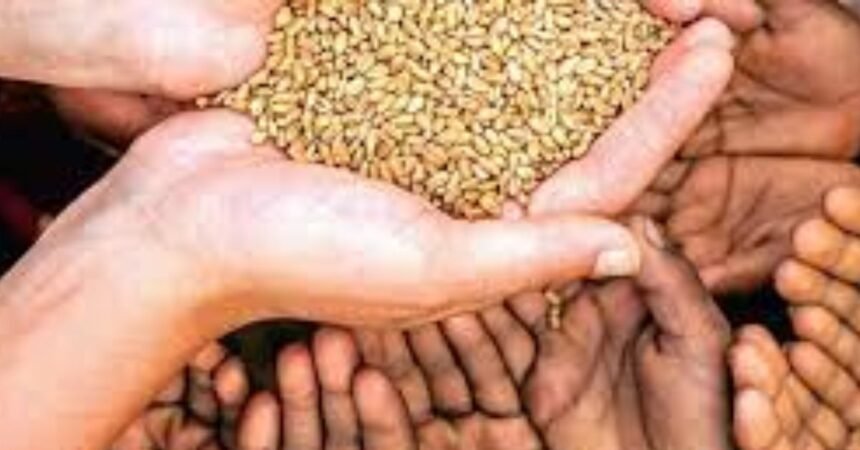Ranchi, September 23, 2025: The mandatory electronic Know Your Customer (e-KYC) process for ration card holders in Jharkhand has caused significant disruptions, leaving millions of vulnerable residents without access to essential food supplies. Technical challenges and administrative delays have prevented many cardholders from completing e-KYC, raising concerns over malnutrition and food insecurity across the state.
Technical and Administrative Challenges in Ration Card e-KYC
In Manika block of Latehar district, Vinay, son of Satendra Singh from Bichlidaag village, has not been able to complete his e-KYC. The block office required an updated Aadhaar linked with a birth certificate, but despite repeated attempts, both Aadhaar updates and e-KYC verifications failed. Thousands of similar cases have been reported across Jharkhand, reflecting systemic inefficiencies in the electronic verification process.
Over the past six months, districts like West Singhbhum have begun canceling ration cards of those who failed to complete e-KYC or did not collect rations. The central government identified around 41 lakh “ineligible” ration cardholders, including deceased individuals, duplicate cards, and those with land holdings exceeding 2.4 acres. By August 4, 2025, 2.5 lakh cards had already been canceled in Jharkhand. Questions about transparency and reliability of the process remain critical.
e-KYC System and Its Implications
The e-KYC process is an Aadhaar-based authentication system that verifies cardholders using biometric or facial recognition technology. Its purpose is to remove fraudulent or ineligible beneficiaries and ensure that subsidies reach genuine needy families. The central government mandated completion of e-KYC by June 30, 2025, warning that non-compliance would result in subsidy suspension.
As of August 5, 2025, out of 72.9 lakh ration cards in Jharkhand, 14.6 lakh remained unlinked with Aadhaar and consequently excluded from the e-KYC process. From November 2024 to June 2025, rural areas faced issues including outdated 2G e-POS machines, weak network connectivity, slow servers, biometric failures, and missing mobile numbers in Aadhaar records. Umashankar Singh, Principal Secretary of the Food Supply Department, acknowledged in December 2024 that server overloads were affecting both ration distribution and e-KYC completion.
Tribal Communities Hit Hardest
In Manika block, the tribal population has been disproportionately impacted. By May 2025, 797 out of 1,120 tribal cardholders (71%) had not completed e-KYC. Among them, 21% did not have Aadhaar numbers linked with their ration cards. Several villages reported partial e-KYC completion for only one family member, yet rations were later denied to the rest of the household.
The central government directed states to record reasons for non-completion of e-KYC and mark affected beneficiaries. However, Jharkhand has not provided standardized formats for ration dealers, leaving data incomplete and fragmented. At present, there is no clear mechanism for ration distribution to cardholders who failed to complete e-KYC, leaving vulnerable populations, including migrant workers, elderly, and sick individuals, without access to essential food supplies.
Stay Updated with the Latest News in Jharkhand!
Be the first to know every important news, from Jharkhand Politics to Jharkhand News. We keep you prepared for every moment. Follow us for Breaking News in Jharkhand and never miss out on Jharkhand Trending Topics!
Stay connected with Jharkhand Headlines!






